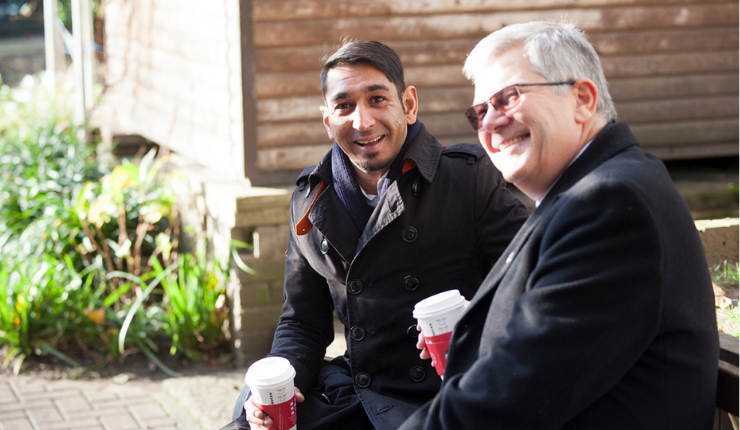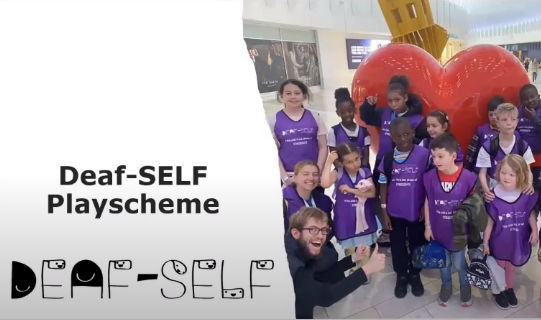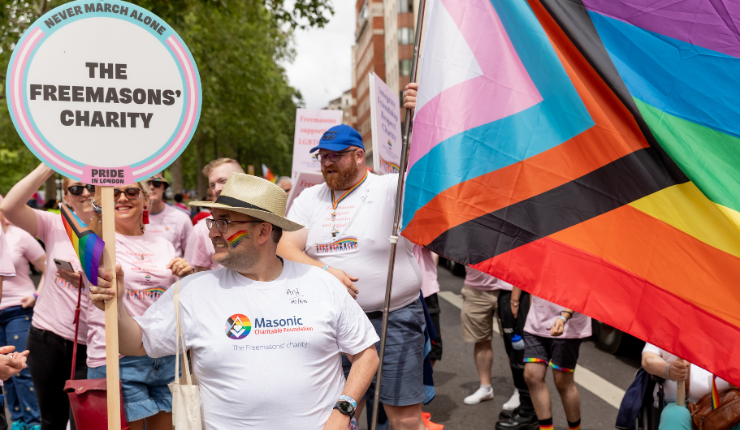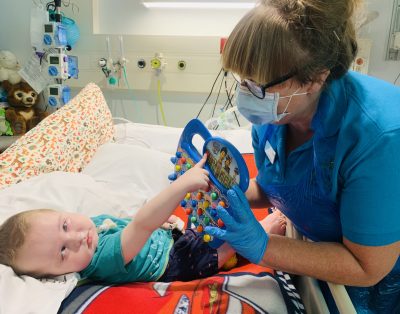Children and Young People, Grants to charities
Durham Freemasons support disadvantaged children coping with a parent in prison
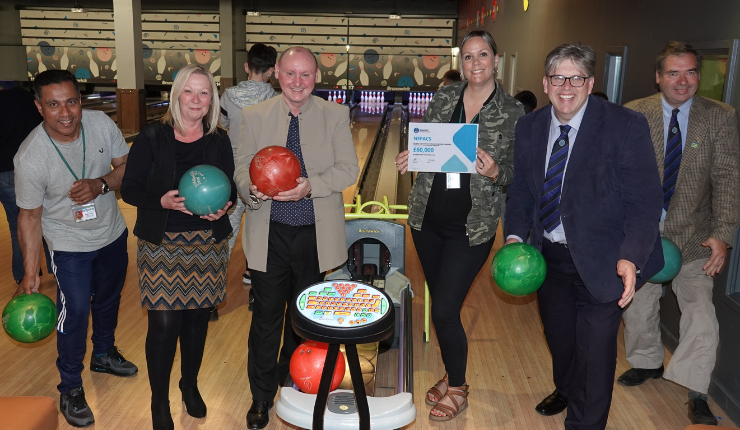
Emma Price and Abdul Amin of NEPACS with John Thompson and Durham Freemasons representatives
More than 200 local children and young people with a parent in prison will be given the support they need to overcome social stigma, loneliness, and mental health problems, thanks to a grant of £60,000 from Durham Freemasons to locally based charity, NEPACS.
The project, named Bee Yourself, will deliver a package of practical and emotional support for young people in the north east of England, aged four to 17. These are disadvantaged young people, mostly from households in a receipt of free-school meals, located in deprived wards and experiencing significant financial and emotional hardship.
Many of these young people do not receive specific help and often ‘go under the radar’ when their parent goes into custody. They are more likely than their peers to experience social isolation, loneliness, and mental health issues. An estimated 30 per cent of children impacted by parental imprisonment experience significant mental health problems, compared to 10 per cent of the wider youth population.
Similarly, children of prisoners are more likely to take unauthorised school absences than their peers. This has an inevitable effect on their overall educational attainment and passes on disadvantages to the next generation.
Children of prisoners are also at far greater risk of engaging in criminal behaviour. Statistics show that 54 per cent of people entering prison have at least one child under 18 and 312,000 children are affected by parental imprisonment each year. 71 per cent of boys who experience a parent in prison end up in trouble with the police themselves and 66 per cent will go on to offend.
NEPACS’ existing, more informal Young People’s services deliver impressive results: 80 per cent have reported a reduction in isolation; 89 per cent of young people stating they had formed new lasting friendships; 90 per cent stating they had no intention of involving themselves in criminal behaviour in the future; 90 per cent have indicated an improvement in their ‘state of happiness’ and 75 per cent have since reported a significant improvement in self-esteem and confidence.
We’re very grateful to Durham Freemasons for their generous grant which will allow us to help hundreds of children and young people who are experiencing mental health issues, loneliness, and social isolation following imprisonment of a parent. Helping them to overcome these issues will be a huge benefit to them, their families, and to the community in general.
I’m very pleased we’ve been able to support NEPACS with their excellent programme to support children who are struggling after a parent has been sent to prison. One especially alarming statistic is that two thirds of the sons of prisoners end up in trouble with the police themselves. Helping them to avoid involvement in crime and take advantage of their education can transform their lives.

